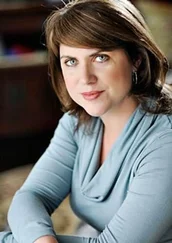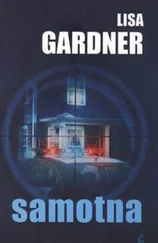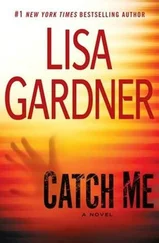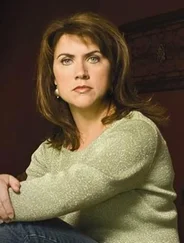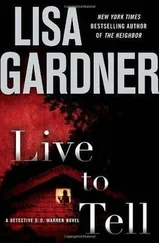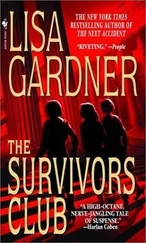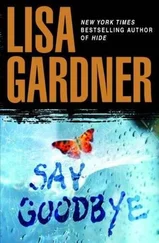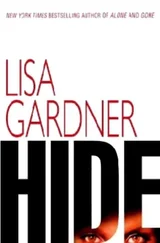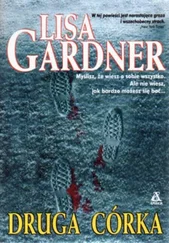I regarded him with pure, stony rage.
“You’re right, Libby,” he said quietly. “What kind of man hurts his wife and tears apart his family? I don’t want to be that man. I never wanted to be like…”
He hesitated, and I knew what he meant to say. He didn’t want to be like his own dad.
I don’t know why that should’ve made a difference. Justin’s father had been a hard, misogynistic 1950s man who’d idolized his only son while driving his wife to drink with his nearly legendary unfaithfulness. So the apple hadn’t fallen far from the tree. That’s all Justin’s unfinished statement should’ve meant to me.
Except…it made me remember other things, too. All those quiet moments of true confession during our dating years. The kinds of conversations that occur in the afterglow, sprawled naked on a bed, Justin stroking my bare arm, talking about the man he’d both worshipped and abhorred. Loved as a father, while being quietly appalled by the way he’d behaved as a husband.
Justin had wanted his father’s business sense, but he’d vowed even then to be a better husband, a better man.
Just as I looked back at my own parents and swore never to smoke and to always wear helmets.
That’s the problem, you see. It’s so much easier to fall in love, and so much more complicated to fall out of it. Because I couldn’t just see this moment. I had eighteen years of memories of this man, including our younger days, and the hopes and dreams we’d both nurtured. When we’d magically assumed we could do better than our own parents, because we hadn’t walked in their shoes yet. We didn’t realize just how complicated and lonely even a good marriage can get.
“I don’t want to lose you,” my husband had said That Day. “I’m willing to try harder. I want to do better. Libby… I love you.”
I made him leave. But I did let him call. And later, he settled into the basement bedroom, as we officially moved into the “working on it” phase of our marriage. Which meant he traveled just as much but brought me flowers more often. And I fixed his favorite meals, while withdrawing deeper and deeper inside myself. Both of us waiting for our marriage to magically feel normal again.
Time heals all wounds, right? Or if not, what the hell, six months later, you can always try date night.
I told myself I stayed in the marriage for Ashlyn. I told myself you just don’t walk away from eighteen years together.
But the truth?
I still loved him. My husband had cheated on me. My husband had lied to me. He’d sent texts to another woman using the kind of endearments I thought were once reserved only for me. He’d slept with her. Then, based on what I could piece together, returned home and, on several occasions, made love to me.
And yet, my heart still skipped a beat when he walked into the room. The sound of his laugh filled an ache in my chest. The feel of his long, strong fingers retained the power to make me shiver.
And I hated him for that. For hurting me and then being decent about it. I didn’t want him kind or gentle or remorseful. I wanted him to be the bad guy. Then I could’ve just left him. Changed the locks on the doors and never looked back. But dammit, he kept trying. He ended the relationship as I asked. He moved out of our bedroom into the basement as I asked. He suggested marriage counseling, though in the end, I was the one who proved resistant. But he kept at it, dozens of tiny little gestures, trying to reassure me of his love, and that he was sorry and he really did want me back. Except, instead of making me feel better, all of his outreaches simply made me feel worse.
I wondered, did he spoon with her afterward? Feed her oranges? Watch her lounge around in nothing but his favorite dress shirt? Did he whisper to her the kind of innermost dreams he once used to share with me?
I couldn’t let her go. She had entered our marriage, some pretty young thing, and I didn’t know how to get her back out again. So I’d pop open the orange prescription bottle, shaking out two, then four, then six chalky white pills. Trying to halt the endless stream of painful imagery running through my head.
But even I understood it wasn’t the memory of That Day I was trying to dull with the pills. Not even the pain of betrayal that I needed to go away.
It was my love for my husband I was desperately trying to let go.
Because if I could love him less, then maybe I could forgive him more.
And it had amazed even me, how many pills it was taking to get the job done.
ASHLYN HAD TO GO TO THE BATHROOM. She whispered her need in my ear as we were ushered into a single cell, her trembling body pressed to my side. I nodded once, half listening to her and half hearing the clang of the steel door slamming shut behind us.
We were together, a pathetic party of three, now garbed in identical prison orange jumpsuits. The smallest size was still too large for Ashlyn, rolled up at the ankles and still swimming on her slight frame. The jumpsuits all had short sleeves, which I thought would be cold, except the cell was hot, the whole wing almost oppressive with its stale, overheated air.
Z had informed us the thermostat was set at a fixed seventy-six degrees. Winter, spring, summer, fall. Didn’t matter in a prison. Likewise, the overhead lights were on 24/7. Morning, noon or night, also irrelevant for life behind bars.
Our dingy white cinder-block cell was narrow and deep, with a set of cream-painted steel bunks on either side, topped by what appeared to be a few inches of foam covered in a vinyl I could only describe as Smurf blue. The end of the cell featured a tall, narrow window bisected by a single steel bar. The door, comprised mostly of twelve-gauge steel, also boasted a thin viewing window, probably for a guard to check on the inmates. The window in the far wall overlooked bare, brown earth. The window in the door overlooked the cell block’s cavernous dayroom, where prisoners could commune at hard metal tables, or tend to hygiene in exposed showers. In the middle of the space sat a lone command post, most likely where one corrections officer supervised an entire two-story wing of stacked cells.
I checked for Z, Radar or the one called Mick. Best I could tell, all three had disappeared. The dayroom was empty. We were finally alone, shuttered up with a mere seven locked doors between us and freedom.
I relayed Ashlyn’s need to Justin. He nodded once, jaw clenched, eyes hard with equal parts rage and helplessness. When he turned to our daughter, however, his face softened and he sounded almost normal.
“So, here’s the first part of prison life.” He spoke briskly, as if describing a strange, new adventure. “One toilet, one sink for all of us to share—”
“Daddy—”
“Think of it as summer camp—”
“I can’t—”
“Ashlyn, stop. I need you to hold strong. We’re going to get through this.”
Her lower lip trembled. She was on the verge of tears.
I wanted to reach out to my daughter, but I didn’t. Because what would be the point? Don’t cry, darling, we’ll all be okay?
We’d been abducted by madmen out of our own home. We were clad in thin orange jumpsuits with slippers on our feet, shoved into a white eight-by-ten cell where there was barely enough room to stand and the only places to sit were prison bunks topped by the world’s thinnest vinyl mattresses. Things were not all right. Things were wrong, very, very wrong, and probably going to get worse.
Justin moved to stand at the far window, his back to the toilet, his broad shoulders covering the exposed window. I moved to block the window in the doorway, my back also to my daughter, who’d begun demanding privacy at age eight, and by age fifteen, found anything involving the human body totally mortifying if not completely shameful.
Читать дальше


